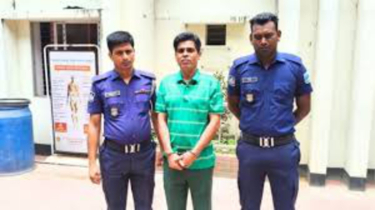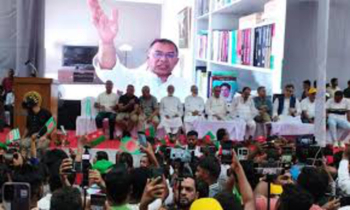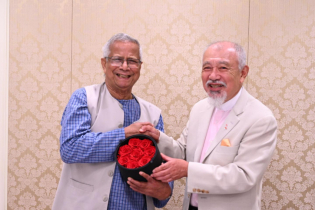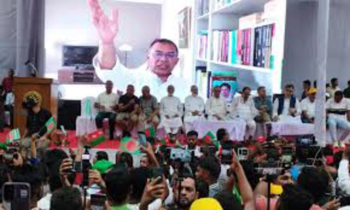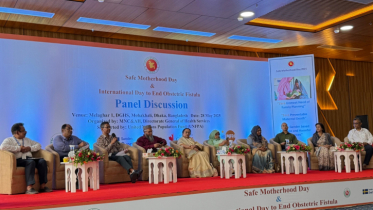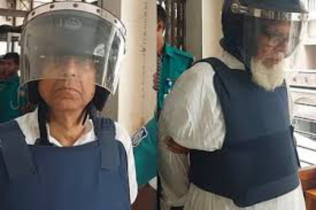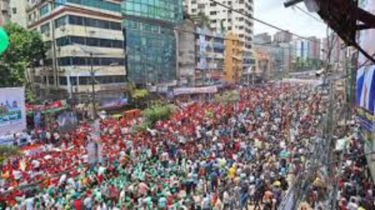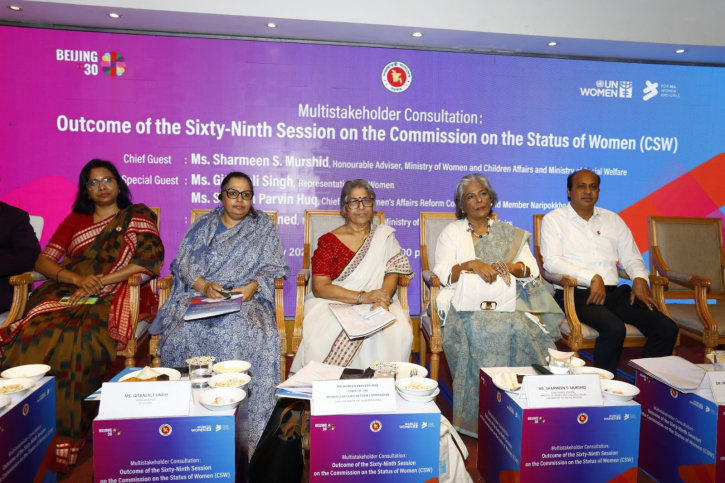
Speakers at a multi-stakeholder consultation in Dhaka on Tuesday called for additional investment to achieve gender equality and women's empowerment by 2030.
The Ministry of Women and Children Affairs, with support from UN Women Bangladesh, convened the consultation to disseminate outcomes of the 69th United Nations session on the Commission on the Status of Women (CSW69) and chart a roadmap to implement the Beijing+30 agenda in Bangladesh.
In 1995, 189 countries adopted the Beijing Declaration and Platform for Action—a global agenda to ensure gender equality and women’s rights. Observing the 30th anniversary of the historic event, the 69th session of the UN Commission on the Status of Women (CSW69) was held at the UN Headquarters in New York from 10–21 March.
Reaffirming commitments to the Beijing Declaration, high-level stakeholders convened to discuss the opportunities and challenges in implementing the prescribed policies in the country.
The event also aimed to define concrete, time-bound activities aligned with Bangladesh’s CSW69 commitments—including ending gender-based violence, closing the economic participation gap, enhancing women’s climate resilience, promoting digital inclusion, and strengthening legal frameworks.
The consultation brought together around 100 participants, including senior representatives from key ministries and divisions, development partners, civil society, and women’s rights organizations—particularly those who participated in the CSW69 session in New York earlier this March.
Dr Prakash Kanti Chowdhury, Joint Secretary of the Ministry of Women and Children Affairs (MoWCA) presented experience and learning from different by-lateral discussions at the CSW which included application of AI tools to tackle GBV, establishing mentorship in the agriculture sector, enhancing sustainable daycare in the rural sector.
He also shared MoWCA’s roadmap that will work towards digital inclusion, poverty eradication, and ending violence.
Present as the Chief Guest Ms. Sharmeen S. Murshid, Adviser to the MoWCA and Ministry of Social Welfare said, “Many commissions have been created, but I still haven't seen a lot of strong proposals to ensure women's participation in the electoral process and representation of the marginalized.”
She added, “We will introduce a relevant policy proposal after consulting with everyone, because I'm not satisfied with the current ones. There is no respectable alternative other than direct election for women. Because, we have witnessed how 50 women sat in the parliament and turned a blind eye whenever women faced violence day in and out. We do not want this.”
Present as the Special Guest UN Women Representative Ms Gitanjali Singh said, "On the 30 years of Beijing Declaration, we must also be united on two core foundations: financing and data. The UN estimates that USD 360 billion in additional investment per year is required to achieve gender equality and women's empowerment by 2030.”
“Progressive fiscal reform and an overhaul of the global financial architecture that creates and exacerbates global inequalities are long overdue. Women’s organizations, an engine of change across the Beijing+30 Action Agenda, require sustainable and flexible funding to do their essential work," she said.
During the open discussion session participants prioritised lifting its CEDAW reservations, citing precedent from several Muslim-majority countries, focusing on migrant workers, informal workers, Dalit women, children, women with disability and gender-diverse populations from LNOB perspective, addressing hate speech and violence against women online and the importance of ensuring legal accountability mechanisms and structural reforms to address social norms.
During the reflection from CSW session, Tamanna Singh Baraik from Dalit Women Forum who went to the CSW69 in New York said, “I represented a community that has been discriminated against for 200 years. Going to that easy. Dalits in BD are discriminated against in mainstream society for being Dalit and discriminated for being women in regular life. We need to create more opportunities for women from Dalit community to increase their participation at international forums like CSW.”
The participants echoed that many reforms exist in policy but fail in implementation or reach. They stressed that greater field-to-policy translation is needed, particularly in marginalized and rural communities.
Another CSO leader, Rowshan Jahan Moni from ALRD said, “Women want the right to land, particularly farmland. In a country where farming is still the primary avenue of work, ensuring land rights for women is crucial to their empowerment. I would request urge the interim government to issue an executive order granting access to khas land, a measure that can be implemented immediately.”
Present as the Special Guest, the chairperson of the Women Affairs Reform Commission and member of Naripokkho said, “We consulted all reforms commissions except constitution reform commission. Their response was disheartening: they questioned why women should be involved in matters of legal and constitutional reform.”
She also added, “Based on multiple discussions, internal consultations the Women Affairs Reform Commission submitted the demands under three categories: doable, desirable, and dreams."
CSW69 aimed to review progress on the Beijing Declaration, thirty years after its adoption at the Fourth World Conference on Women. It assessed current implementation gaps and adopted a Political Declaration reaffirming global commitment to gender equality and the empowerment of women and girls.
TH

.png)
